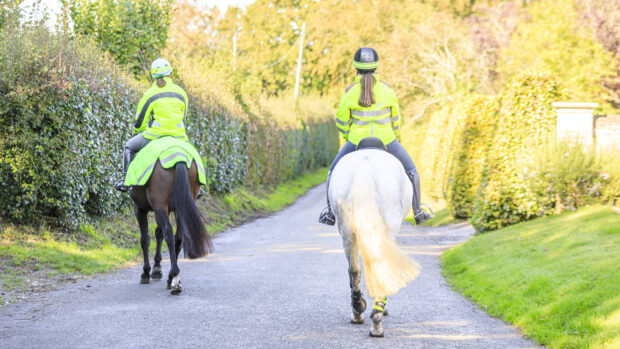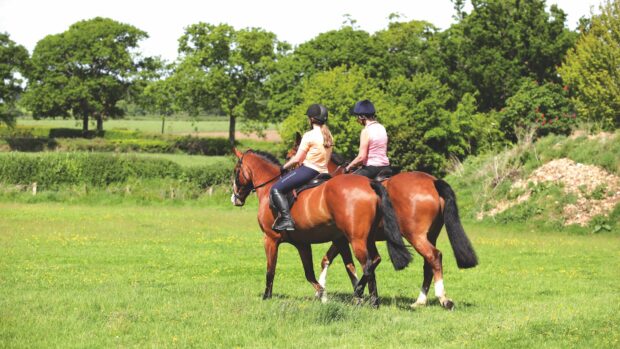A Hampshire riding centre has complained of the way it and its pupils have been treated after an outbreak of strangles hit the yard.
Wellington Riding in Hook was given the all-clear on Monday, 12 May after two of their 115 horses had been diagnosed in April with the disease that affects the respiratory system.
But public reaction prior to the all-clear announcement, which included five of their pupils being banned from taking British Horse Society exams at a local stables, shocked the centre.
David Sheerian, chief instructor at Wellington, told H&H: “We’ve been fascinated by the behaviour of some of the equestrian world. We’ve been treated as if we have the plague.
“We have been entirely open and honest about everything. I was so surprised by the ignorance of some people.
“It is understandable that people would be worried, but the biggest issue is that people usually keep quiet about it. The morning we found out, we immediately told everyone.”
John Sillett, Wellington’s general manager, said he was most surprised by Rycroft Equitation in Hampshire.
On 25 April, five students from Wellington went to Rycroft to take their BHS stage one exam but were refused entry.
Mr Sheerian said: “The group of 16- and 17-year-olds were frogmarched out and made to stand in the road.”
But Rycroft proprietor Bill Hundley defends his actions.
“We discussed it with our vet and, even though it was a small risk, decided it was not worth it,” he said. “We could not be entirely sure the students had taken the necessary precautions. Strangles spreads quickly and it would have ruined our livelihood.”
Vet Malcolm Morley, who advised Rycroft, added: “Wellington was not free from strangles and although the risk was extremely minimal, strangles is a serious welfare and financial issue.”
The first case was discovered at Wellington on 29 March and the second on 2 April. All events were then cancelled until last week.
Although no horse movement has been allowed into or out of Wellington since March, lessons on the riding school’s horses and ponies went ahead — but strict precautions were implemented, including protective suits and footbaths.
Vet Simon Knapp, who was treating the infected horses, told H&H that Wellington had handled its strangles situation in an exemplary manner.
“They were honest and followed the recommended guidelines to the book,” he said. “They were fastidious about their bio-security and I can find no fault with them.”
John Sillett added: “Most of our regular customers have responded positively to our honesty — but we’ve had a few cases of hysteria, such as one owner who cancelled their riding holiday for August.”
The BHS told H&H it is currently investigating the situation. Former president of the British Equine Vets Association Josh Slater said the reaction to Wellington highlights one of the biggest problems with the disease.
“There is a huge stigma attached to strangles and it is unhelpful to discourage people from being open and honest about the disease,” he said. “It sounds as if the centre has done a fantastic job if it has managed to limit the outbreak to two out of 115 animals. It is an excellent example of how the problem can be contained.
“The general advice is to be vigilant. The worst thing is to do nothing.”
This news story was first published in Horse & Hound (22 May, ’08)



